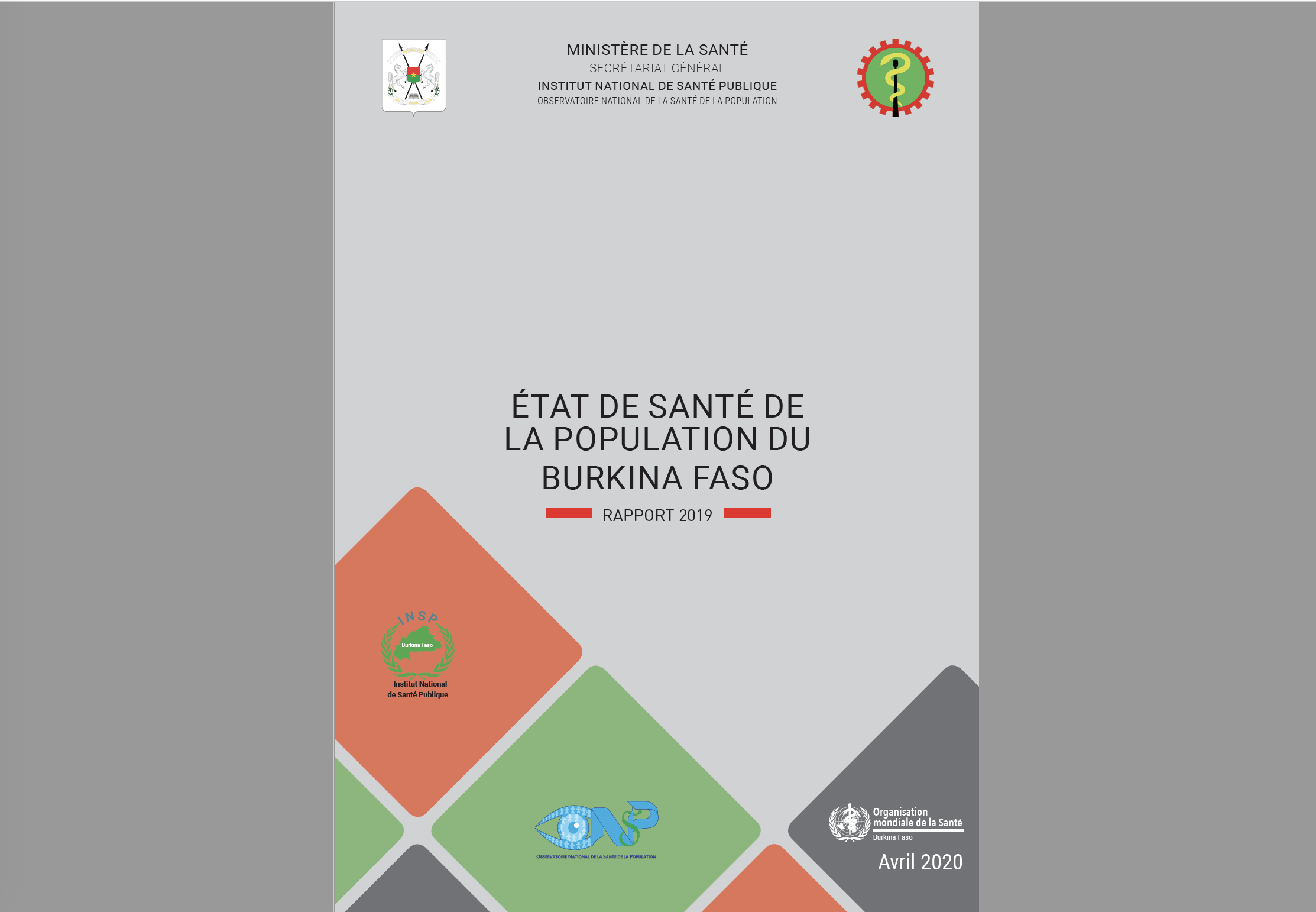Burkina Faso Publishes its First Population Health Status Report
The Ministry of Health of Burkina Faso and the Institut de Santé Publique, the national public health institute and a member of IANPHI, recently published their first report on the health status of their population, which shows continuous progress. The report will serve as an essential planning tool for public health to better guide decision-making based on scientific evidence.

The report offers a complete snapshot of the health situation in 2019. It looks at the evolution over time and identifies successes and challenges. Burkina Faso has made significant progress in recent decades. A testament to that progress is the continuous improvement of life expectancy at birth, which increased from 53.8 years in 1996 to 56.7 years in 2006. It is estimated at 61.6 years in 2019, above the average level of West Africa (57.8 years) but below the world average level (72.6 years).
Infant, child and maternal mortality is declining but remains above the national health development program target (PNDS 2020). Infant and child mortality fell by 55.6% between 2003 and 2015, going from 184 deaths per 1,000 live births in 2003 to 81.6 per 1,000 live births in 2015. Maternal mortality decreased from 341 to 330 deaths per 100,000 live births, respectively in 2010 and 2015. There was also a moderate decline in fertility.
The report also shows a persistence of the burden of malaria morbidity and mortality in children under five, an increased emergence of noncommunicable diseases, which requires to step up the effort to fight gynecological cancers, and a rise in cases of pesticide poisoning. Urban populations are increasingly exposed to air pollution, traffic accidents – up by almost 50% in less than five years – and the risk of deteriorating health conditions due to the rapid and uncontrolled growth of the urban population. The majority of the population is young and this youth is exposed to risky sexual behavior – 42.7% of girls aged 15-19 are at risk of having unprotected sex – and to the consumption of drugs and alcohol.
Finally, the country has been facing a persistent deterioration of the security context in recent years, which poses a risk to the health of populations and especially of the more than half a million internally displaced persons. As a result, the main indicators of national and international commitments for health – the PNDS and the national economic and social development plan (PNDES), and the Sustainable Development Goals 2 and 3 – will fall short of their 2020 targets.
The Ministry of Health has undergone reforms of the health system in recent years, and several major projects are still underway. In 2019 efforts focused on access to care, universal health insurance, the creation of a National Population Health Observatory, and the start of operations for the new Emergency Operations Center (EOC).
The Institut de Santé Publique (INSP), which hosts both the EOC and the observatory in its structure, was founded one year earlier, in 2018. The institute is tasked with health surveillance and providing the Ministry of Health with evidence drawn primarily from research and surveillance to assist in the prevention and control of disease, the protection and promotion of health and the management and evaluation of public health. IANPHI has been supporting the development of INSP since its creation, through peer-to-peer visits, direct funding and the work of a local consultant.
“The report is important for the INSP because it reflects our commitment to provide the Ministry of Health and public health programs with planning tools,” said Dr. Hervé Hien, director of the institute. “The report was drawn up using a participatory and multisectoral methodological approach. It is the product of a process of progressive internal and external data collection and validation.”
“This report teaches us about the important efforts to be made to maintain certain health indicators,” he added. “It was submitted to the main decision-makers to encourage its use in future sectoral planning. One of the priorities for the INSP is to measure the evolution of the health risks identified in the report and the interventions developed by health programs for their diminution.”
The full health status report is available for download in French.